
Учебники школьные / анг яз уч ответы
.PDF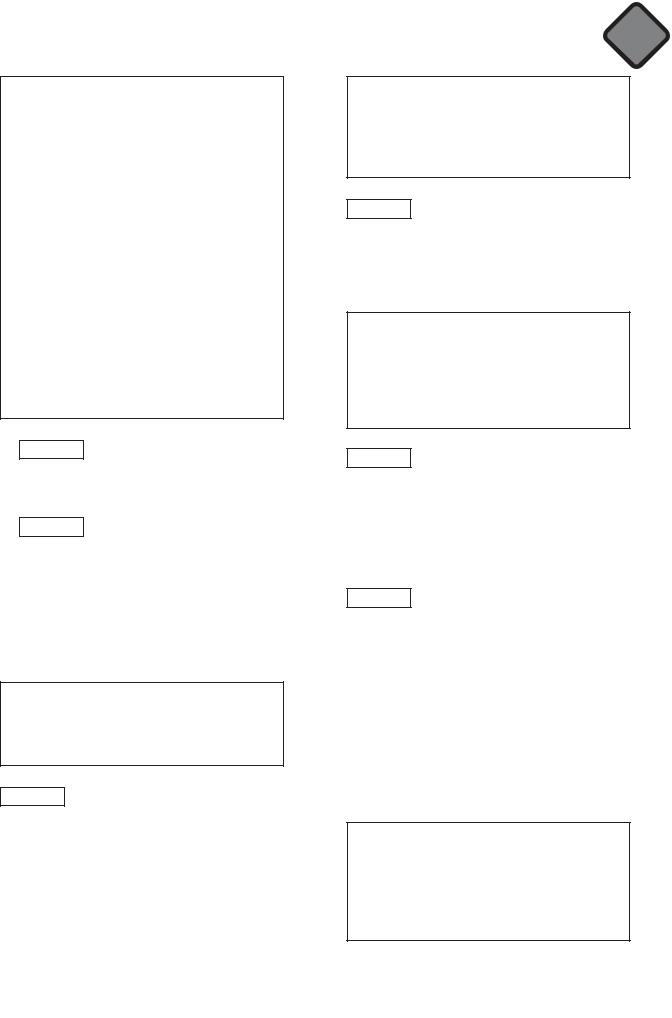
ñA: I dreamt that I missed the bus. What do you think it could mean?
B:It means you are sad because you have missed an opportunity.
A:Surely not!
ñA: I had a dream that I was taking exams. What do you think it means?
B:It could mean that you are stressed out because you are unprepared for something.
A:That’s a thought.
ñA: I had a dream that I was unable to move. Do you have any idea what that means?
B:Well, I can’t say for sure, but it might mean you feel lost and don’t know what to do about a situation.
A: I doubt that.
4 a) Focus Introducing situational language
Play the recording. Ss listen and repeat the phrases.
b) Focus Predicting the context of a dialogue/Reading and listening for confirmation
ñIn groups of 3-4 have Ss discuss what the phrases from Ex. 4a mean and ask Ss what they think the dialogue is about.
ñHave Ss listen to and read the dialogue to check their predictions.
Answer Key
The dialogue is about a nightmare that Lizzie had and Katie speculating is on the meaning and reassuring her.
5Focus Reading for specific information
ñHave Ss read the sentences and then the dialogue.
ñSs complete the sentences individually and compare their answers with a partner.
ñCheck Ss’ answers.
Listening & Speaking 3b
Answer Key
1 she had a horrible nightmare
2 get to an exam
3 wouldn’t move
4 fail her exams
6Focus Understanding synonymous
ñHave Ss complete the task individually.
ñCheck Ss’ answers.
ñAs an extension, ask Ss to make up with the phrases.
Answer Key
What’s the problem? ― What’s the matter?
I’m so sorry. ― Poor you!
That’s awful.― That’s horrible!
Everything’s OK.― Don’t worry!
I feel better now.― That’s a relief!
7Focus Role playing a dialogue
ñIn pairs have Ss practise the dialogue, roles.
ñInvite a few pairs to read out the dialogue front of the class.
Intonation
8Focus Presenting/Practising intonation
when expressing surprise and concern
ñRemind Ss that intonation is the way your rises and falls as you speak.
ñRead the study skills box aloud.
ñPlay the recording. Ss listen and complete task individually.
ñPlay the recording again with pauses to Ss’ answers.
ñHave Ss listen again and invite different repeat the phrases. Check for intonation.
Answer Key
1 I don’t believe it!
2 That’s horrible!
3 What’s the matter?
4 You can’t be serious!
5 Is everything alright?

3b |
|
|
Listening & Speaking |
|
|
|
|
|
|||||
|
|
|
|
|
|
|
|
|
|
|
|
||
Listening |
|
|
|
|
|
11 |
|
Consolidating vocabulary from the |
|||||
|
|
|
|
|
Focus |
||||||||
|
|
|
Listening for comprehension |
|
unit |
|
|
|
|||||
9 |
|
Focus |
|
|
|
|
|||||||
|
|
(multiple |
matching) |
|
|
|
|
ñ Have Ss review the unit for a few minutes, then |
|||||
|
ñ Explain the task and play the recording. |
|
ask them to close their book and think of |
||||||||||
|
ñ Ss listen and complete the task individually. |
|
phrases they have learnt and write sentences |
||||||||||
|
ñ Play the recording again. Check Ss’ answers. |
|
with them. |
||||||||||
|
|
|
|
|
|
|
|
|
ñ In pairs Ss read each other their sentences. |
||||
|
|
|
|
|
|
|
|
|
ñ Monitor the activity and check for correct use |
||||
|
|
|
Answer Key |
|
|
|
|
||||||
|
|
|
|
|
|
|
|
of phrases. |
|||||
|
|
|
1 C |
2 B |
3 A |
4 E |
5 D |
|
|
||||
|
|
|
|
|
|
|
|
|
|||||
|
|
|
|
|
|
|
|
|
|
|
|
|
|
Speaking |
|
|
|
|
|
|
Suggested Answer Key |
|
|||||
|
|
|
|
|
|
1 |
What do you think this dream means? |
|
|||||
|
|
|
|
|
|
|
2 |
Do you really think so? |
|
||||
10 |
|
Focus |
Discussing a strange dream |
|
|
|
|
||||||
|
|
|
|
|
|
|
|
|
|
3 |
I can’t say for sure, but I think you are |
|
|
|
ñ In pairs, have Ss discuss a strange dream one of |
|
|
||||||||||
|
|
|
under a lot of stress. |
|
|||||||||
|
|
|
them had. |
|
|
|
|
|
|
|
|||
|
|
|
|
|
|
|
|
4 |
I couldn’t get back to sleep after that |
|
|||
|
ñ Direct Ss to use the vocabulary from the unit |
|
|
||||||||||
|
|
|
terrible nightmare. |
|
|||||||||
|
|
|
and the language in the ‘Everyday English’ box. |
|
|
|
|||||||
|
|
|
|
5 |
Oh, that’s horrible. You poor thing! |
|
|||||||
|
ñ Monitor the activity and assist as necessary. |
|
|
||||||||||
|
|
6 |
Tell me what the problem is. |
|
|||||||||
|
ñ Ss record themselves. |
|
|
|
|
|
|||||||
|
|
|
|
|
7 |
I keep having the same dream over and |
|
||||||
|
|
|
|
|
|
|
|
|
|
|
|||
|
|
|
|
|
|
|
|
|
|
|
over again. |
|
|
|
|
|
Suggested Answer Key |
|
|
|
|
|
|
||||
|
|
|
|
|
|
|
8 |
I think it means you are anxious about |
|
||||
|
|
|
A: I had a strange dream last night. All I can |
|
|
something. |
|
||||||
|
|
|
remember is that I was locked in a room all |
|
9 |
That can’t be right! |
|
||||||
|
|
|
by myself and I had to sit an exam. I wasn’t |
|
10 |
So, it doesn’t mean I’m going to fail my |
|
||||||
|
|
|
allowed to leave until I was finished, but I |
|
|
exams then? |
|
||||||
|
|
|
had no idea what it was about. I felt very |
|
|
|
|
|
|||||
|
|
|
|
|
|
|
|
||||||
|
|
|
alone and afraid. Do you have any idea |
|
|
|
|
|
|||||
|
|
|
what it means? |
|
|
|
|
|
|
|
|
|
|
B:Well, it could mean you are stressed and that’s why you dreamt that.
A:Do you really think so?
B:Yes. Try not to let things get to you and relax before sleeping.
A: That’s a thought.
54

|
3 c |
|
Grammar in Use |
|
|
|
|
|
||||||||||||||
|
|
|
|
|
|
Objectives |
|
|
|
|
|
|
|
|
|
|
|
|
|
|||
Grammar: past |
simple; |
past |
continuous; |
past |
|
|
|
|
3 past continuous ― past form of the verb to |
|
||||||||||||
|
|
|
|
|
be + main verb + -ing |
|
||||||||||||||||
perfect; past perfect continuous; used to/would |
|
|
|
|
|
|
||||||||||||||||
|
|
|
|
4 past continuous ― past form of the verb to |
|
|||||||||||||||||
Reading: reading for comprehension (gap fill) |
|
|
|
|
|
|||||||||||||||||
|
|
|
|
|
be + main verb + -ing |
|
||||||||||||||||
Listening: listening for specific information |
|
|
|
|
|
|
|
|||||||||||||||
|
|
|
|
|
5 past perfect ― had + past participle of the |
|
||||||||||||||||
Writing: an email about a strange event |
|
|
|
|
|
|
|
|||||||||||||||
|
|
|
|
|
|
|
main verb |
|
|
|
||||||||||||
|
|
|
|
|
|
|
|
|
|
|
|
|
|
|
|
|
|
|
|
|
||
|
|
|
|
|
|
|
|
|
|
|
|
|
|
|
|
|
6 past simple ― irregular past form |
|
||||
|
|
|
|
|
|
|
|
|
|
|
|
|
|
|
|
|
7 |
past simple ― |
regular past form ending in |
|
||
1 |
|
|
|
Revising past tenses |
|
|
|
|
|
|
||||||||||||
Focus |
|
|
|
|
|
|
|
|
-ed |
|
|
|
||||||||||
ñ Have |
Ss |
close |
their books |
and |
write |
the |
|
|
8 past perfect ― had + past participle of the |
|
||||||||||||
|
|
|
main verb |
|
|
|
||||||||||||||||
|
following |
sentences |
on |
the |
board |
without |
|
|
|
|
|
|
||||||||||
|
|
|
9 past continuous ― past form of the verb to |
|
||||||||||||||||||
|
reading the |
tenses |
and |
explanations |
in |
the |
|
|
|
|||||||||||||
|
|
|
|
be + main verb + -ing |
|
|||||||||||||||||
|
brackets: |
|
|
|
|
|
|
|
|
|
|
|
|
|
|
|||||||
|
|
|
|
|
|
|
|
|
|
|
|
|
|
|
|
|
|
|
||||
|
― Yesterday I woke up late. (simple past ― an |
|
|
a |
3, 4 |
|
d |
5, 8 |
|
|||||||||||||
|
|
action which happened at a stated time in |
|
|
|
|
||||||||||||||||
|
|
|
|
b |
1, 3, 9 |
|
e |
6, 7 |
|
|||||||||||||
|
|
the past) |
|
|
|
|
|
|
|
|
|
|
|
|
|
|||||||
|
|
|
|
|
|
|
|
|
|
|
|
|
c |
1, 9 |
|
f |
2 |
|
||||
|
― |
I was studying for my exams all last week. |
|
|
|
|
||||||||||||||||
|
|
|
|
|
|
|
|
|
||||||||||||||
|
|
(past continuous ― an action that was in |
|
|
|
|
|
|
|
|
||||||||||||
|
|
|
|
|
|
|
|
|
|
|||||||||||||
|
|
progress at a stated time in the past) |
|
|
|
|
|
|
|
|
|
|
||||||||||
|
|
|
|
2 |
|
Focus |
Practising past tenses |
|||||||||||||||
|
― I was working in the garden when it started |
|
||||||||||||||||||||
|
|
ñ Have Ss complete the task and justify their |
||||||||||||||||||||
|
|
to rain (past continuous and past simple ― |
|
|||||||||||||||||||
|
|
an action that interrupted an action in |
|
|
answers to their partners. |
|||||||||||||||||
|
|
progress in the past) |
|
|
|
|
|
|
|
ñ Invite Ss to read out answers and justifications |
||||||||||||
|
― |
He was talking on the phone while I was |
|
|
to the class and check their answers. |
|||||||||||||||||
|
|
working. (past continuous/past continuous |
|
|
|
|
|
|
|
|
||||||||||||
|
|
― two actions in progress that happened |
|
|
Answer Key |
|
|
|
||||||||||||||
|
|
simultaneously in the past) |
|
|
|
|
|
1 |
hadn’t called ― an action that didn’t |
|||||||||||||
|
― |
I had been reading for an hour when Mum |
|
|
|
happen before another action in the past |
||||||||||||||||
|
|
came home. (past perfect continuous/past |
|
2 |
had been crying ― shows the duration of a |
|||||||||||||||||
|
|
simple ― an action in progress in the past |
|
|
|
past action which had visible results at a |
||||||||||||||||
|
|
emphasising |
duration |
interrupted |
by |
|
|
|
later moment in the past |
|||||||||||||
|
|
another past action) |
|
|
|
|
|
|
|
3 |
switched ― the first of two actions which |
|||||||||||
|
― |
I went to the cinema after I had finished |
|
|
|
happened one after the other in the past |
||||||||||||||||
|
|
my homework. (past simple/past perfect ― |
|
4 |
was playing ― an action that was happening |
|||||||||||||||||
|
|
an action that happened before another |
|
|
|
when another action interrupted it |
||||||||||||||||
|
|
action in the past) |
|
|
|
|
|
|
|
5 |
had just happened ― an action that |
|||||||||||
ñ Focus Ss’ attention on the verb forms. |
|
|
|
|
|
|
happened before another moment in the |
|||||||||||||||
ñ Elicit/Explain what the verb tenses are in each |
|
|
|
past |
|
|
|
|||||||||||||||
|
sentence and how they are used. |
|
|
|
|
|
6 |
had parked ― an action that happened |
||||||||||||||
ñ Refer Ss to the Grammar Reference section if |
|
|
|
before another action in the past |
||||||||||||||||||
|
necessary. |
|
|
|
|
|
|
|
|
|
|
|
7 |
were lying ― an action that was in |
||||||||
ñ Ss complete the task. |
|
|
|
|
|
|
|
|
|
progress at a stated time in the past |
||||||||||||
ñ Invite Ss to read out their answers and check. |
|
8 |
hadn’t finished ― an action that didn’t |
|||||||||||||||||||
|
|
|
|
|
|
|
|
|
|
|
|
|
|
|
|
|
|
happen before another action in the past |
||||
|
Answer Key |
|
|
|
|
|
|
|
|
|
|
|
9 |
had been working ― shows the duration of |
||||||||
|
1 past continuous ― past form of the verb to |
|
|
|
|
a past action which happened before |
||||||||||||||||
|
be + main verb + -ing |
|
|
|
|
|
|
|
|
|
another past action |
|||||||||||
|
2 past |
perfect |
continuous |
― |
had + |
been |
+ |
|
|
10 |
had been driving ― shows the duration of |
|||||||||||
|
main verb + -ing |
|
|
|
|
|
|
|
|
|
|
a past action which happened before |
||||||||||
|
|
|
|
|
|
|
|
|
|
|
|
|
|
|
|
|
|
another past action |
||||
|
|
|
|
|
|
|
|
|
|
|
|
|
|
|
|
|
|
|||||
55
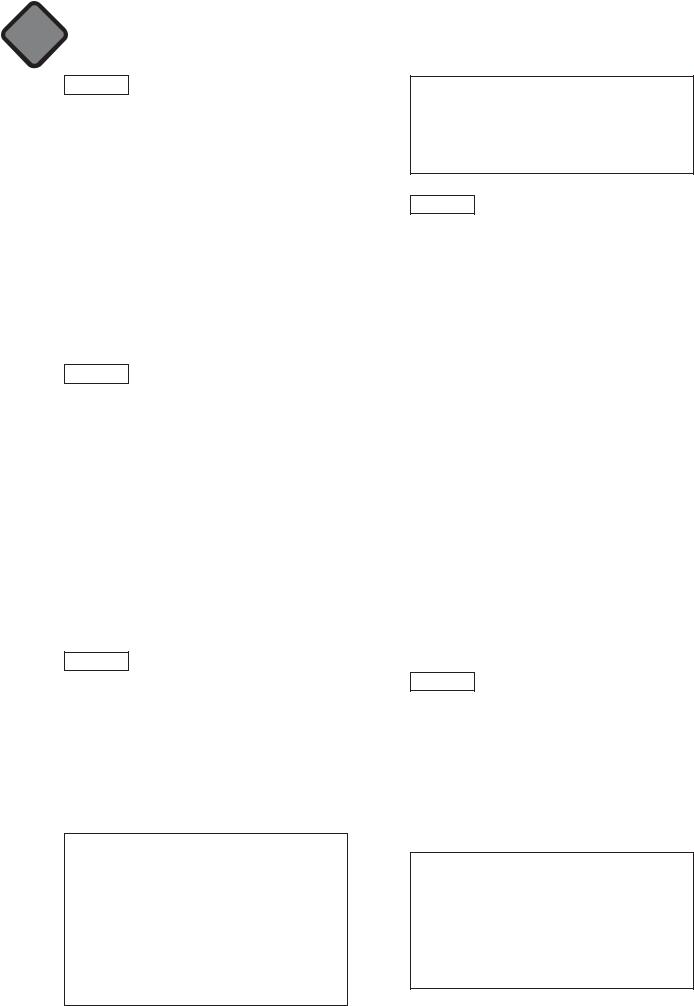
3c Grammar in Use
3Focus Practising the past simple and past
continuous/Listening for confirmation
ñHave Ss complete the task individually.
ñSs listen to the recording and check their answers.
Answer Key |
|
|
|
1 |
was |
8 |
came |
2 |
was thinking |
9 |
was showing |
3 |
called |
10 |
opened |
4 |
Did I tell |
11 |
had |
5 |
happened |
12 |
was |
6 |
were shopping |
13 |
didn’t expect |
7 |
were looking |
|
|
|
|
|
|
4Focus Practising the past perfect and the
past perfect continuous
ñRead the theory box aloud and check Ss understand it.
ñHave Ss complete the task individually and compare their answers with a partner.
ñCheck Ss’ answers.
Answer Key |
|
|
|
1 |
had missed |
5 |
had been digging |
2 |
had only been |
6 |
had not finished |
|
working |
7 |
had been cooking |
3 |
had eaten |
8 |
had just decided |
4 |
had been waiting |
|
|
|
|
|
|
5Focus Practising time expressions with
past tenses
ñRefer Ss to the list of time expressions and adverbs. Explain that they are clues to which past tense should be used in a sentence.
ñHave Ss write their sentences and compare with a partner.
ñInvite Ss to read out their sentences in class and check Ss’ answers.
Suggested Answer Key
I hadn’t seen my cousins since they were children.
I left my home town five years ago.
While I was studying for my exams my sister was flying to Paris.
I was walking in the sunshine last Sunday when I got caught in a shower.
Last winter I had the flu for three weeks.
56
I went to America for my holidays last summer.
At five o’clock yesterday afternoon I was doing my homework.
I joined a new English class last January and by June I had taken my exam.
6Focus Understanding used to/would
ñWrite the following sentences on the board without the brackets:
―When I was a child I used to/ would ride my bike for hours. (past habit/action)
―I used to love ice cream, but now I prefer cake. (past state)
ñElicit/Explain what situation each sentence is describing (answer in brackets). Explain that both ‘used to’ and ‘would’ can be used to describe past habits/actions but only ‘used to’ can be used to describe past situations/states (ie. It is incorrect to say: I would love ice cream, but now I prefer cake.)
ñAsk for more examples from the class and write them on the board.
ñRefer Ss to the Grammar Reference section for further explanation if necessary.
ñSs complete the sentences.
ñCheck Ss’ answers.
Answer Key |
|
|
|
1 |
used to/would |
4 |
used to/would |
2 |
used to |
5 |
didn’t use to |
3 |
didn’t use to |
6 |
used to/would |
|
|
|
|
7Focus Listening for specific information/
Practising used to and didn’t use to
ñRead through the rubric and explain what Ss will be listening for (what things the children ‘used to’ and ‘didn’t use to’ do when they were young).
ñPlay the recording. Ss listen and complete task.
ñInvite Ss to read their sentences out in class and check Ss’ answers.
Answer Key
stay at their grandma’s all summer play in the garden
go to bed late
go to the beach alone feed the chickens
help with the housework

Suggested Answer Key
They used to play in the garden. They didn’t use to go to bed late.
They didn’t use to go to the beach alone. They used to feed the chickens.
They didn’t use to help with the housework.
8Focus Practising used to/would
ñIn pairs have Ss tell their partner things they ‘used to’, ‘didn’t use to’ or ‘would’ do as a child.
ñMonitor the activity and check for correct usage of grammar.
Suggested Answer Key
I used to go to the lake in the summer. I used to go skiing with my friends.
When I was ten, I would ride my bike for hours.
I didn’t use to like eating onions.
9Focus Reading for comprehension/ Practising
past tenses
ñDirect Ss to pay attention to the time expressions and adverbs when deciding on the correct tense of the verbs.
ñHave Ss complete the task and reread the text checking that it makes sense.
ñInvite some Ss to read out the text and check Ss’ answers.
Answer Key |
|
|
|
1 |
were walking |
5 |
had never |
2 |
was enjoying |
|
experienced |
3 |
froze |
6 |
disappeared |
4 |
had appeared |
7 |
had seen |
|
|
|
|
Grammar in Use 3c
Writing
10 Focus Writing an email about a strange event that happened in the past
ñRead the rubric aloud and check Ss the task.
ñDirect Ss to try to use various past tenses have learned in the unit and appropriate expressions/adverbs. Encourage Ss to use imaginations.
ñAllow Ss time to write their Alternatively, assign the task as HW.
ñInvite Ss to read their emails out in class check for correct use of past tenses.
Suggested Answer Key
Dear Sam,
You’ll never guess what happened to me! I staying at my grandmother’s house weekend. While I was playing in the garden, found an old bike my dad used to ride brought it to my grandfather and he put air the tyres. I went for a ride through woods near the house. I had been riding
a path for about an hour when I heard strange sound. I stopped and looked around, but I didn’t see anything. Suddenly, I something moving in the bushes and went
to see what it was. It was a strange animal was lying on the ground and it was crying tried to get up, but its leg was tangled up something. I quickly untangled it and it got It was unlike any animal I had ever seen.
I thought I heard it say ‘Thank you’ before turned and ran off into the woods. I was to help, but it sure was a strange day!
Talk to you soon, Steve
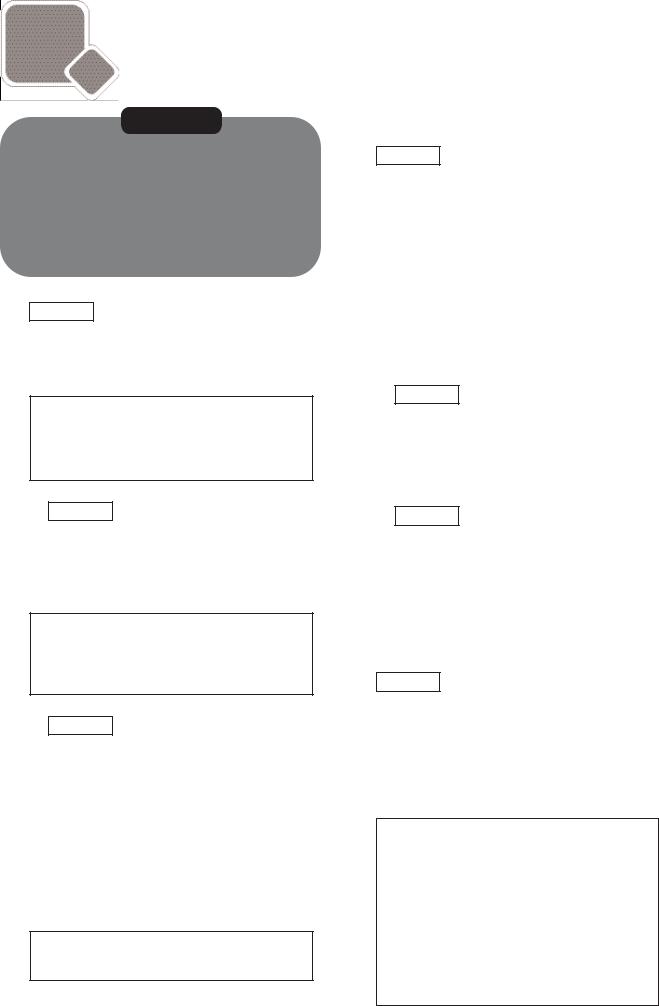
3 d Vocabulary & Speaking
Objectives
Vocabulary: related to the mind Grammar: must/can’t/may
Reading: reading for coherence and cohesion Listening: listening for specific information Speaking: describing a painting; making assumptions; role playing making suggestions and reaching a decision
1Focus Introducing the topic
ñHave Ss look at the pictures and answer the questions individually.
ñIn pairs, Ss compare their answers and discuss.
Suggested Answer Key
1 three
2 two (heads), four (bodies)
3 all of them
2 a) Focus Discussing the topic of the text/
Reading for confirmation
ñElicit answers to the question in the rubric and discuss.
ñHave Ss read the text to check their answers.
Suggested Answer Key
We don’t always see things as they really are because of optical illusions and because we all have different opinions.
b) Focus Reading for coherence and cohesion/Listening for confirmation (missing sentences)
ñEmphasise the importance of looking at the sentences before and after the gap to make sure the chosen phrase makes sense in that context.
ñSs complete the task and reread the text to ensure it makes sense.
ñPlay the recording. Ss listen and check their answers.
Answer Key
1 D |
2 F |
3 A |
4 B |
5 E |
58
Vocabulary
3Focus Understanding vocabulary related to
the mind
ñHave Ss complete the task.
ñInvite Ss to read out the sentences in class to check their answers.
Answer Key |
|
|
|
1 |
fantasy |
4 |
illusion |
2 |
reflection |
5 |
imagination |
3 |
mind, brain |
|
|
|
|
|
|
Speaking
4 a) Focus Presenting must/can’t/may
ñRead the grammar box out and check Ss understand the uses.
ñElicit similar structures in Ss’ L1.
(Ss’ own answers)
b)Focus Practising must/can’t/may
ñHave Ss complete the task individually.
ñElicit answers and check.
Answer Key |
|
|
|
|
|
1 |
may |
3 |
must |
5 |
can’t |
2 |
must |
4 |
may |
6 |
may |
|
|
|
|
|
|
5Focus Understanding descriptions of
pictures/paintings
ñRead the theory box and explain/elicit any unknown vocabulary.
ñRead the description of the painting aloud and elicit answers to the questions in the rubric and discuss.
Suggested Answer Key
Yes, the description is detailed.
The people are a group of field workers collecting grapes. There is a man on a cart on the left of the painting and a group of women carrying baskets on the right.
The place is in the open countryside.
The colours are natural shades of green, red and blue.
The picture is realistic.
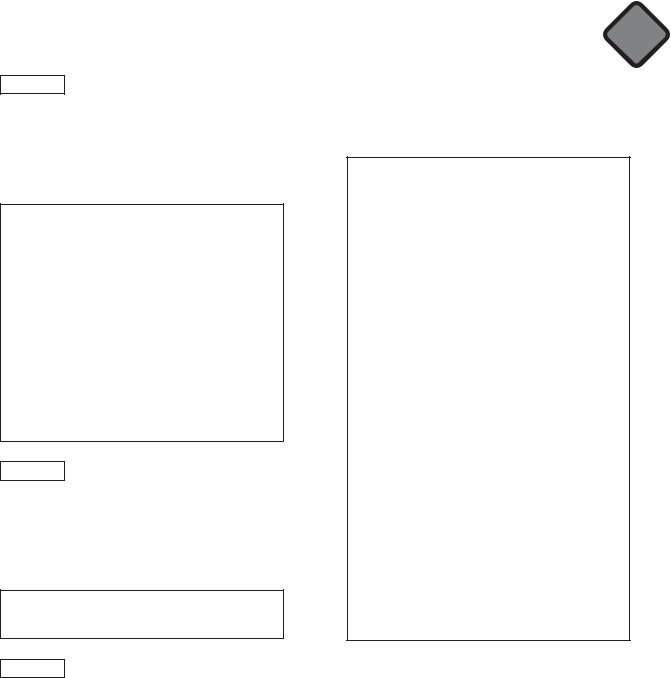
6Focus Describing a painting
ñRefer Ss to the painting.
ñAllow Ss a few minutes to study the painting and think about how to describe it.
ñInvite Ss to describe the painting to the class and check for detail in their descriptions.
Suggested Answer Key
This oil painting shows a country scene. It is a portrait of a group of schoolchildren on a Sunday school walk with their teacher. In the background is the sky and the open countryside and on the right is a country cottage. The teacher is in the foreground in the centre surrounded by her pupils. The children are enjoying themselves and some of them are holding flowers, so it may be springtime. The colours are pale shades of blue, green, red and brown. The painting looks very natural.
7Focus Listening for specific information
ñRead the rubric aloud to prepare Ss for the listening task.
ñPlay the recording. Ss listen and complete the task.
ñElicit the answer and check.
Answer Key
They decide to go to see a play.
8Focus Role playing making suggestions and
deciding on an option
ñPlay the recording from Ex. 7 again and direct Ss to pay attention to the language of making suggestions and reaching a decision.
ñIn pairs, Ss act out a dialogue following the prompts in the rubric.
Vocabulary & Speaking 3d
ñMonitor the activity and assist as necessary.
ñInvite a few pairs to act out their dialogue in class and ask for feedback from the rest of the class.
Suggested Answer Key
A:We need to decide on an activity to raise money for charity. What do you think about having a photographic exhibition?
B:It sounds interesting, but I am worried about whether everyone would be able to get involved. Do you think everyone has a camera to take pictures?
A:That’s a good point. I suppose it could be expensive to develop and enlarge the pictures, too.
B:What about a demonstration by a wellknown local artist? We could get someone
to come in and teach a variety of art skills.
A:I’m not sure about that. What if the person only knows one style of art and it isn’t interesting for some of the people? We need something that can be interesting for everyone.
B:You’re right. OK, how about a classical music concert?
A:I don’t really like this idea. Many people don’t like classical music. What about a painting competition? Everyone can paint and we have all of the supplies here.
B:That’s a great idea. Let’s have a painting competition.
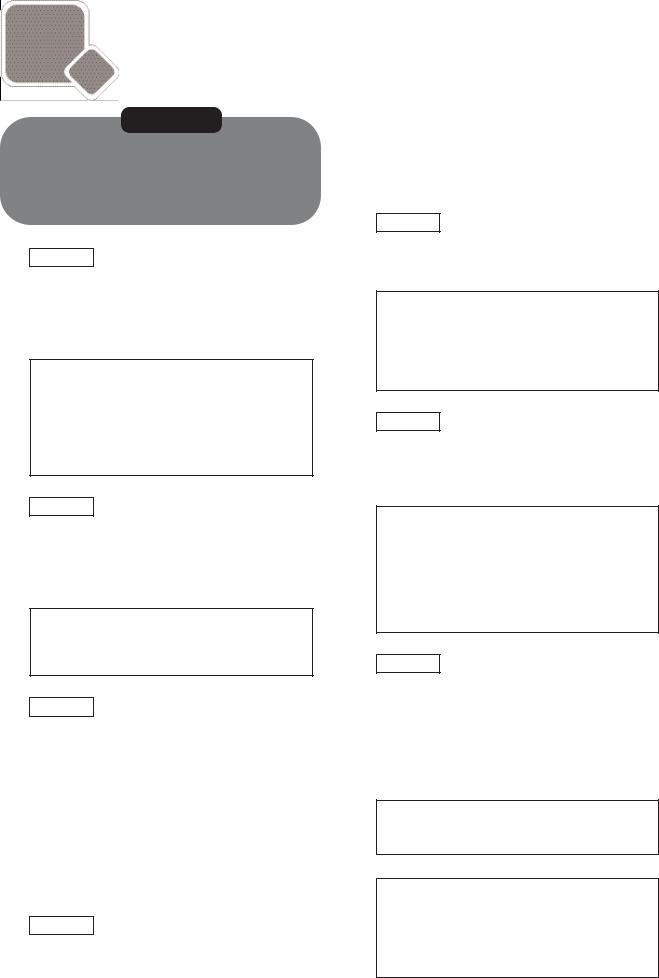
3 e Writing Skills
Objectives
Vocabulary: verb ― adverb collocations; adjectives Reading: reading for structure
Listening: listening for specific information
Writing: a story
1Focus Understanding stories
ñElicit answers to the questions in the rubric and discuss.
ñSs read the theory box. Check Ss understand the content of stories.
Suggested Answer Key
A story can be about an unusual or interesting experience that happened to you or someone else.
An interesting story has a variety of verbs, adjectives and adverbs.
2Focus Predicting the content of a text
ñRefer Ss to the picture and the title of the story.
ñElicit answers to the questions in the rubric and discuss.
Suggested Answer Key
I expect to read a ghost story. It could be about a ghost that haunted an old inn.
3Focus Reading for text structure/order of
events
ñRefer Ss to the list of events and read through them.
ñSs read the story and complete the task.
ñCheck Ss’ answers.
Answer Key |
|
|
|
|
|
|
|
||
A 9 |
C |
1 |
E |
8 |
G |
10 |
I |
6 |
K 4 |
B 11 |
D |
5 |
F |
3 |
H |
2 |
J |
7 |
|
|
|
|
|
|
|
|
|
|
|
4Focus Analysing the structure of a story
ñElicit answers to the questions in the rubric.
ñCheck Ss’ answers.
Answer Key |
|
|
|
a |
Paras 1 and 2 |
c |
Para 1 |
b |
Para 3 |
d |
Para 4 |
|
|
|
|
5Focus Identifying time linkers in a story
ñHave Ss reread story looking for time linkers.
ñElicit answers and check them on the board.
Answer Key
Para 1 ― as, Almost immediately
Para 2 ― When, The next morning, then
Para 3 ― A week later, As soon as, While
Para 4 ― When, Immediately
6Focus Identifying adjectives in a story
ñHave Ss find the adjectives used to identify the nouns listed in the rubric.
ñCheck Ss’ answers on the board.
Answer Key
the inn ― small
a policeman ― young
the peoples’ clothes ― very old-fashioned the bill ― extremely cheap
the two buildings ― ruined
7Focus Practising verb ― adverb collocations
ñExplain that certain adverbs go with certain verbs to form a collocation (words that are typically/frequently used together).
ñSs complete the task individually.
ñInvite Ss to read their sentences out to check their answers.
Answer Key
1 c |
2 b |
3 d |
4 a |
5 e |
Suggested Answer Key
2Mary was singing happily as she was riding her bicycle.
3It had been raining heavily and the ground was wet.
60

Writing Skills 3e
4Mr Jones shouted angrily when my dog ran across his flowerbeds.
5I was driving carefully when the accident happened.
8Focus Practising using adjectives and
adverbs
ñRead through the list of adjectives and adverbs and check Ss understand their meanings.
ñSs complete the task individually.
ñInvite a S to read out the text and check Ss’ answers.
ñEmphasise how much more interesting and descriptive the text is with the new adjectives and adverbs.
Answer Key |
|
|
|
|
1 |
fiercely |
3 |
loud |
5 quickly |
2 |
huge |
4 |
terrifying |
|
|
|
|
|
|
Answer Key
Introduction
ñAnn and Tim
ñat home watching TV, bored
ñdecided to visit a museum in a castle
Main body
ñarrived at museum late afternoon, many visitors, Ann felt scared in the dark rooms of exhibits
ñTim saw a model of a man in old-fashioned costume, Ann took a photo of them
her digital camera, Tim was alone in photo, the model had disappeared the room
Conclusion
ñthey ran to the reception desk
ñthe lady there told them it was the museum ghost
ñthey felt terrified
Writing |
11 |
Focus |
Writing a story/Self-checking |
||||||||||
|
|
|
Analysing a rubric |
ñ Allow Ss time to write their stories |
|||||||||
9 |
|
Focus |
|||||||||||
|
|
|
|
|
|
|
the plan from Ex. 10. Alternatively assign |
||||||
|
ñ Have Ss read the rubric and underline the key |
|
|||||||||||
|
|
task as HW. |
|
|
|
|
|||||||
|
|
|
words. |
|
|
|
|
|
|||||
|
|
|
ñ Direct Ss to use the checklist to self check |
||||||||||
|
ñ Elicit answers to the questions in the rubric |
||||||||||||
|
|
stories after they have finished and make |
|||||||||||
|
|
|
and discuss. |
|
|||||||||
|
|
|
|
necessary corrections. |
|
|
|||||||
|
|
|
|
|
|
|
|
|
|||||
|
|
|
|
|
|
ñ Invite Ss to read their stories in class |
|||||||
|
|
Answer Key |
|
||||||||||
|
|
|
|
the class to give feedback. |
|
|
|||||||
|
|
Key words: Internet site, asking readers, |
|
|
|
|
|
|
|
|
|
||
|
|
short stories, title ‘A very strange tale’, write |
|
|
|
|
|
|
|
|
|
||
|
|
Suggested Answer Key |
|
|
|
||||||||
|
|
your story, 120-180 words |
|
|
|
|
|
||||||
|
|
|
|
It was a dark, stormy afternoon during |
|||||||||
|
|
|
|
|
|
|
|||||||
|
|
1 |
a story |
|
|
school |
holidays |
and |
Ann |
and |
Tim |
||
|
|
|
|
watching TV at home, feeling bored. ‘I |
|||||||||
|
|
2 readers of an Internet site |
|
|
|||||||||
|
|
|
|
Ann! Let’s go to the castle.’ Tim said excitedly |
|||||||||
|
|
3 |
b |
|
|
||||||||
|
|
|
|
‘There’s a good museum there.’ |
|
||||||||
|
|
|
|
|
|
|
|
||||||
|
|
|
|
|
|
|
It was late afternoon when they arrived |
||||||
|
|
|
|
|
|
|
|||||||
10 |
|
Focus |
Listening for specific information |
|
they were the only visitors. |
‘Ooh, it’s a |
|||||||
|
|
and text |
structure |
|
scary in here!’ Ann said as they were walking |
||||||||
|
ñ Read through the plan and prepare Ss for what |
|
slowly |
through |
the |
cold, |
dark |
rooms |
|||||
|
|
exhibits. ‘Don’t be silly,’ Tim replied. |
|||||||||||
|
|
|
they will be listening for. |
|
|||||||||
|
|
|
|
|
|
|
|
|
|
|
|||
|
ñ Play the recording. Ss listen to the story and |
|
Suddenly, Tim noticed an interesting |
||||||||||
|
|
|
complete the task. |
|
which was a model of a man wearing a very |
||||||||
|
ñ Copy the plan onto the board and invite Ss to |
|
costume. He stood next to him and Ann took |
||||||||||
|
|
|
fill in the answers to the questions in the plan |
|
photo of them with her digital camera, |
||||||||
|
|
|
on the board. |
|
then when she looked at the screen |
||||||||
|
ñ Discuss and check Ss understand the story plan. |
|
couldn’t believe her eyes! Tim was standing |
||||||||||
|
|
|
|
|
|
|
alone in the photo ― the man wasn’t next |
||||||
|
|
|
|
|
|
|
him! Then, they looked up and saw that |
||||||
|
|
|
|
|
|
|
|
|
|
|
|
|
|
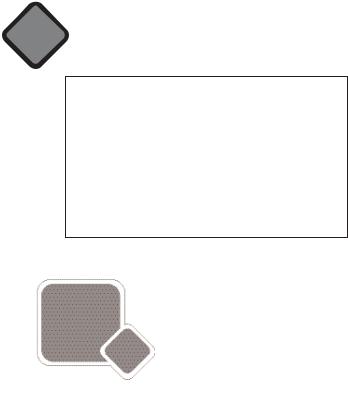
3e Writing Skills
model wasn’t in the room any more! It had disappeared!
Ann and Tim ran quickly back to the reception desk. They were terrified! They told the lady there their story. ‘Ah-ha! That wasn’t a model, that was Henry, the museum ghost,’ she said, smiling. Tim looked at Ann. She was completely white!
|
3 f |
English in Use |
|
|
|
|
|
|
|
|
|
|
|
|
|
|
||||||||||
|
|
|
|
|
Objectives |
|
|
|
|
|
|
|
|
|
|
|
|
|
|
|
|
|
|
|
||
|
|
|
|
|
|
|
|
|
|
|
2 |
|
Focus |
Presenting/Practising phrasal verbs |
||||||||||||
Vocabulary: compound |
adjectives; |
phrasal |
verbs |
|||||||||||||||||||||||
|
ñ Explain that the verb is already in the sentence |
|||||||||||||||||||||||||
(come); prepositional phrases; |
words |
often |
|
|||||||||||||||||||||||
|
|
|
and |
they |
must |
fill |
in the |
correct particle |
to |
|||||||||||||||||
confused (scenes/sightings/sights, fantasy/ |
|
|
|
|||||||||||||||||||||||
|
|
|
form |
the |
phrasal |
verb that |
applies |
to |
the |
|||||||||||||||||
imagination/illusion, witnesses/spectators/ |
|
|
|
|||||||||||||||||||||||
|
|
|
meaning in brackets. |
|
|
|
|
|
|
|||||||||||||||||
investigators, same/similar/alike) |
|
|
|
|
|
|
|
|
|
|
|
|
||||||||||||||
|
|
|
|
ñ Ss complete the task individually and check |
||||||||||||||||||||||
Grammar: past tenses |
|
|
|
|
|
|
||||||||||||||||||||
|
|
|
|
|
|
|
|
their answers in Appendix 1. |
|
|
|
|
|
|||||||||||||
Reading: reading for lexico-grammatical correctness |
|
|
|
|
|
|
|
|
||||||||||||||||||
|
ñ As an extension, invite Ss |
to |
make up other |
|||||||||||||||||||||||
|
|
|
|
|
|
|
|
|
|
|
|
|||||||||||||||
|
|
|
|
|
|
|
|
|
|
|
|
|
|
sentences with the phrasal verbs and tell the |
||||||||||||
|
|
|
Presenting compound adjectives |
|
|
class. |
|
|
|
|
|
|
|
|
|
|
||||||||||
1 a) |
|
Focus |
|
|
|
|
|
|
|
|
|
|
|
|
||||||||||||
|
|
ñ Read through the theory box and check Ss |
|
|
|
|
|
|
|
|
|
|
|
|
|
|
||||||||||
|
|
|
Answer Key |
|
|
|
|
|
|
|
|
|
||||||||||||||
|
|
|
understand what compound adjectives are. |
|
|
|
|
|
|
|
|
|
|
|||||||||||||
|
|
|
|
1 |
across |
|
3 |
down with |
|
5 over |
|
|
||||||||||||||
|
|
ñ Have Ss read text on pp. 42-43 again and |
|
|
|
|
|
|||||||||||||||||||
|
|
|
2 |
up with |
4 |
out |
|
|
|
|
|
|
||||||||||||||
|
|
|
find examples of compound adjectives. |
|
|
|
|
|
|
|
||||||||||||||||
|
|
|
|
|
|
|
|
|
|
|
|
|
|
|
|
|
||||||||||
|
|
ñ Elicit answers in class and check. |
|
|
|
|
|
|
|
|
|
|
|
|
|
|
|
|
|
|||||||
|
|
|
|
|
|
|
|
|
Presenting/Practising dependent |
|
|
|||||||||||||||
|
|
|
|
|
|
|
|
|
|
|
|
|
|
|
||||||||||||
|
|
|
|
|
|
|
|
|
|
3 |
|
Focus |
|
|
||||||||||||
|
Answer Key |
|
|
|
|
|
|
|
|
|||||||||||||||||
|
|
|
|
|
|
|
|
prepositions |
|
|
|
|
|
|
|
|
|
|||||||||
|
well-known, snake-like, deep-sea, ten-metre, |
|
|
|
|
|
|
|
|
|
|
|
||||||||||||||
|
|
ñ Have Ss complete the task individually and |
||||||||||||||||||||||||
|
strange-looking, two-legged |
|
|
|
|
|
||||||||||||||||||||
|
|
|
|
|
|
|
|
check their answers in Appendix 2. |
|
|
|
|||||||||||||||
|
|
|
|
|
|
|
|
|
|
|
|
|
|
|
|
|
||||||||||
|
|
|
|
|
|
|
|
|
|
|
|
ñ Explain |
that the |
word |
in |
|
front |
of |
the |
|||||||
|
|
|
Forming compound adjectives |
|
|
preposition and the preposition form a phrase. |
||||||||||||||||||||
b) |
|
Focus |
|
|
||||||||||||||||||||||
|
|
|
(word formation) |
|
|
|
|
|
|
ñ Ss then |
make up their own sentences with the |
|||||||||||||||
|
|
ñ Read through the word list and explain any |
|
|
phrases and read them out in class. |
|
|
|
||||||||||||||||||
|
|
|
|
|
|
|
|
|
|
|
|
|
|
|
|
|||||||||||
|
|
|
unknown vocabulary. |
|
|
|
|
|
|
|
|
|
|
|
|
|
|
|
|
|
|
|
||||
|
|
|
|
|
|
|
|
Answer Key |
|
|
|
|
|
|
|
|
|
|||||||||
|
|
ñ Ss complete the task individually and check |
|
|
|
|
|
|
|
|
|
|
||||||||||||||
|
|
|
1 |
of |
|
|
4 |
in |
|
|
7 |
from |
|
|
|
|||||||||||
|
|
|
their answers in a dictionary. |
|
|
|
|
|
|
|
|
|
|
|
|
|||||||||||
|
|
|
|
|
|
|
|
|
|
|
|
|
2 |
from |
|
5 |
about |
|
8 |
about |
|
|
||||
|
|
|
|
|
|
|
|
|
|
|
|
|
3 |
of |
|
|
6 |
in |
|
|
|
|
|
|
|
|
|
Answer Key |
|
|
|
|
|
|
|
|
|
|
|
|
|
|
|
|
|
||||||||
|
|
|
|
|
|
|
|
|
|
|
|
|
|
|
|
|
|
|
|
|
|
|||||
|
1 |
|
late |
3 |
like |
5 |
spine |
|
|
|
|
|
|
|
|
|
|
|
|
|
|
|
||||
|
2 |
|
known |
4 |
haired |
6 |
well |
|
|
|
|
|
|
|
|
|
|
|
|
|
|
|
||||
|
|
|
|
|
|
|
|
|
|
|
|
|
|
|
|
|
|
|
|
|
|
|
|
|
|
|
62
